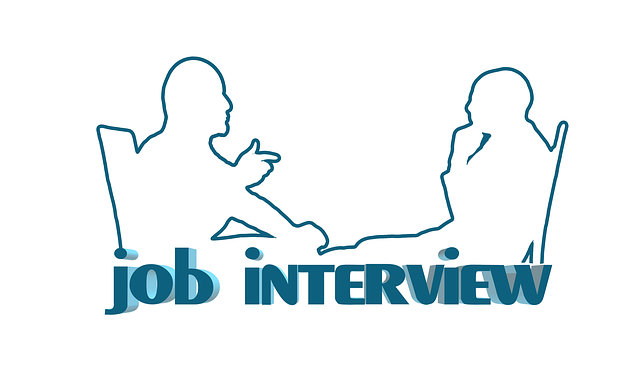Top Job Interview Questions and How to Answer Them
I. Job Interview Introduction
In today’s competitive job market, preparing for an interview is just as important as submitting a great CV. Interviews offer you a chance to present your strengths, personality, and fit for the role. Employers use interviews to evaluate not just your qualifications but also how you communicate, think under pressure, and align with their values. This guide explores common job interview questions, explains their purpose, and provides clear strategies to help you answer confidently and leave a lasting impression.

II. Understanding the Purpose of Interview Questions
A. Why Employers Ask Specific Questions
Employers don’t just want to know your background—they want to understand how you’ll perform in their organization. Interview questions are designed to:
- Assess your skills and experience
- Determine your cultural fit
- Evaluate your problem-solving and critical thinking abilities
B. Types of Questions
- Behavioral: Based on past experiences (e.g., “Describe a time you overcame a challenge”)
- Situational: Hypothetical scenarios (e.g., “What would you do if…?” challenges)
- Technical: Role-specific questions (e.g., coding, accounting, healthcare procedures)
C. The STAR Method
Use the STAR method to structure your answers:
- Situation – Set the context
- Task – Explain your responsibility
- Action – Describe what you did
- Result – Share the outcome
III. Top 10 Common Job Interview Questions
1. Tell Me About Yourself
Why it’s asked: To understand your background and communication style.
How to answer: Focus on your professional journey, highlighting experience relevant to the role.
Example: “I’m a digital marketing specialist with 3 years of experience in SEO and content strategy. I’ve helped companies improve website traffic by up to 50% through data-driven campaigns.”
2. What Are Your Strengths?
Why it’s asked: To gauge your self-awareness and role suitability.
How to answer: Choose strengths that align with the job. Support with examples.
Example: “I’m highly organized, which helps me manage multiple deadlines. In my last job, I led a project team that consistently delivered reports ahead of schedule.”
3. What Are Your Weaknesses?
Why it’s asked: To test your honesty and ability to grow.
How to answer: Mention a genuine weakness and how you’re improving it.
Example: “I used to struggle with public speaking, but I joined Toastmasters to build confidence and improve my presentation skills.”
4. Why Do You Want to Work Here?
Why it’s asked: To assess your interest and company knowledge.
How to answer: Reference the company’s mission, projects, or culture.
Example: “I admire your commitment to innovation in renewable energy, and I want to contribute to meaningful projects that have environmental impact.”
5. Where Do You See Yourself in 5 Years?
Why it’s asked: To understand your long-term goals.
How to answer: Show ambition and align with the company’s growth.
Example: “I hope to grow into a team leadership role where I can mentor others and contribute to strategic decisions.”
6. Describe a Challenging Situation and How You Handled It
Why it’s asked: To evaluate your problem-solving skills.
How to answer: Use the STAR method to structure your story.
Example: “Our system crashed during a product launch (Situation). I led a cross-functional team to troubleshoot (Task & Action), restoring operations within 3 hours (Result).”
7. Why Did You Leave Your Last Job?
Why it’s asked: To assess professionalism and motivations.
How to answer: Be honest but frame your response positively.
Example: “I’m looking for new challenges and growth opportunities that weren’t available in my previous role.”
8. What Are Your Salary Expectations?
Why it’s asked: To determine budget fit.
How to answer: Provide a well-researched range and express flexibility.
Example: “Based on my research and experience, I’m looking for a salary in the KES 80,000–100,000 range, but I’m open to discussing based on the full package.”
9. How Do You Handle Pressure or Stress?
Why it’s asked: To assess your coping mechanisms.
How to answer: Share a practical method or past example.
Example: “I prioritize tasks and stay calm by breaking big problems into smaller steps. During tight deadlines, I use checklists to stay organized.”
10. Do You Have Any Questions for Us?
Why it’s asked: To evaluate engagement.
How to answer: Ask thoughtful questions.
Examples: “What does success look like in this role?” or “Can you tell me more about the team culture?”
IV. Industry-Specific Questions
A. Examples
- Tech: “How would you optimize a database query?”
- Finance: “How do you evaluate a company’s financial health?”
- Healthcare: “Describe how you handle difficult patients.”
B. Preparation Tips
- Stay up-to-date with industry trends
- Review common technical tasks and tools used in the field
C. Answering Tips
- Be specific and showcase your knowledge
- Use real-life examples where possible
V. General Tips for Answering Interview Questions
- Listen carefully to each question
- Be clear and concise in responses
- Maintain positive body language and eye contact
- Tailor responses to the specific job and company
- Avoid negativity about previous roles or employers
VI. Common Mistakes to Avoid
- Being unprepared or sounding rehearsed
- Sharing irrelevant personal information
- Failing to give specific examples
- Not asking questions at the end
VII. How to Prepare for an Interview
- Research the company, culture, and job requirements
- Practice answers through mock interviews
- Prepare 3–5 impactful stories about your experience
- Dress professionally and arrive early
VIII. Job Interview Conclusion
Preparing for interviews is essential for job seekers who want to make a strong impression. By understanding why interview questions are asked and how to answer them confidently, you significantly increase your chances of success. Remember, preparation builds confidence. Keep practicing, stay positive, and don’t hesitate to share your experiences or questions in the comments below!





